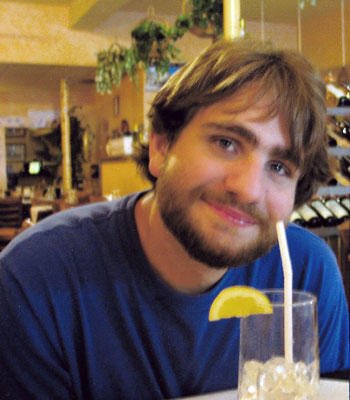Isaac Benjamin Segal
Isaac Benjamin Segal was a 2011 graduate of both the College of Science and Engineering and the College of Liberal Arts at the University of Minnesota, earning degrees in both math and economics. He hoped to pursue a Ph.D. in economics or applied math, but he died suddenly on January 1, 2012, shortly after completing his graduate school applications. Benjamin loved math from the time he was a small boy, and he said that he pursued a math degree, in addition to studying economics, just because he loved mathematics and its inherent beauty. Benjamin worked on cutting-edge applied math research with Dr. Mark Iwen, who was a postdoctoral fellow at the Institute for Mathematics and its Applications. Their research led to the following joint publications.
I.B. Segal & M.A. Iwen, Improved Sparse Fourier Approximation Results: Faster Implementations and Stronger Guarantees, Numerical Algorithms, Vol. 63, Issue 2, pages 239 -- 263, 2013.
I.B. Segal and M.A. Iwen, Signal Approximation via the Gopher Fast Fourier Transform, AIP Conf. Proc., Vol. 1301, pp. 494 -- 504, June, 2010.
Benjamin was closely mentored by Professor Gilad Lerman. As a senior, Benjamin was very active in the Minnesota Center for Industrial Mathematics (MCIM), which was directed by Professor Lerman, and met in person with many MCIM visitors. In summer 2011 he pursued an internship (organized by MCIM) with Lalit Meshta, who was a research fellow at PARC, Xerox, at that time.
One personal characteristic that stood out in Benjamin was his egalitarian spirit. He disliked any situation that smacked of privilege or exclusivity, and he had a gift for seeing the goodness in everyone he encountered. Because he had ADHD, he struggled in school early on and never took the traditional path to his ultimate academic success. Because of this, he understood struggle, welcomed others’ differences, and held a special respect for those whose accomplishments were hard earned or nontraditional.
Benjamin's family established an annual scholarship in mathematics in memory of him. This scholarship aims to honor Benjamin by trying to reflect who he was and gives an opportunity to an undergraduate student to work on a math research project under the supervision of a professor. The scholarship aims to support a student who loves math, and shares the intense curiosity and love of learning that were so much a part of who Benjamin was. It also tries to recognize a student who may be a sort of “diamond in the rough,” someone with potential who has not had a great deal of privilege or opportunity, but deserves a chance to work closely with a professor on a piece of math research.
